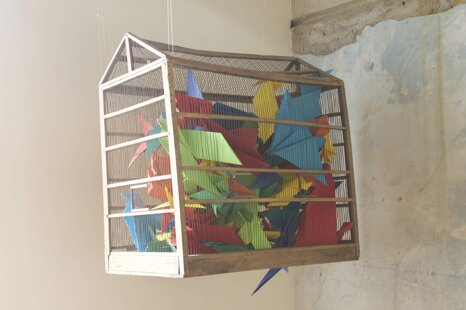postmaster@museumofanthropocenetechnology.org
via Leggiuno 32
2014 Laveno Mombello
Italia

In 1962, Rachel Carson, a US scientist and writer, published her one but last book: “Silent Spring”. She wrote about the indiscriminate effects that pesticides and other man-made chemicals had on nature: land, forests, rivers, birds, children, ... “Here in our village the elm trees have been sprayed for several years. When we moved here six years ago, there was a wealth of bird life. I put up a feeder and had a steady stream of cardinals, chickadees, downies and nuthatches all winter, and the cardinals and chickadees brought there young ones in the summer. After several years of DDT spray, the town is almost devoid of robins and starlings; chickadees have not been on my shelf for years, and this year the cardinals are gone too; the nesting population in the neighbourhood seems to consist of one dove pair and perhaps one catbird family.” (Rachel Carson)
Carson's book brought the ideas from ecology into mainstream public thinking. Ecology was the scientific discipline that studied the interconnectedness between organisms and their environment. It was a discipline that was bringing together rather than it was separating (see Cat. Nr. 12, Cat. Nr. 28, Cat. Nr. 47)
It is said that Carson spoused the romantic idea of a nature that is present timelessly outside humans. As such she probably contributed to the nature / man division. Environmentalism in 20th century took that view. It led to the critique by the right-wing that environmentalists did not care for people, just for nature. ("Carson killed more people than Hitler because of avoiding pesticides" ....)
Environmentalism in 21st century started to see nature and humans, nature and culture, as one. Howver, the idea that we have to live and work with nature in a way that we both can flourish, that we are nature, apparently did not take ground.
The last book of Rachel Carson was: ”The Sense of Wonder”
Cat. Nr. 13
SILENT SPRING
52018, MAT
40 x 60 x 50: paper, wood , iron